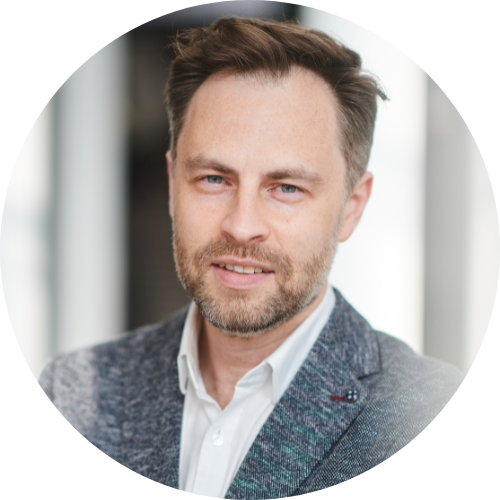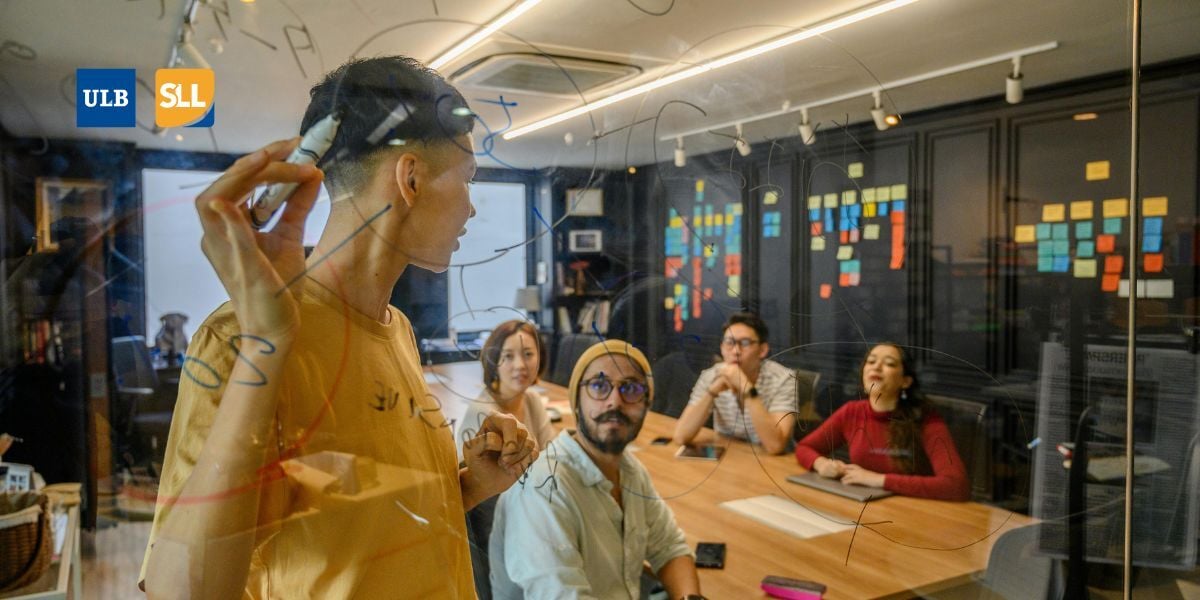Learn more about us.
Life sciences in Belgium: the programme to supply the need for new entrepreneurial talent

Marianna Rousaki |Author
Marianna is the Content & Social Media Coordinator at Solvay Brussels School - Lifelong Learning.

Stay connected
Never miss the latest insights, blogs and news. Subscribe to our newsletter.
The vibrant Belgian life sciences sector needs a constant influx of young and ambitious entrepreneurs to sustain its growth. Solvay Brussels School of Economics and Management has launched a brand-new programme to meet this demand, co-developed with key academic and industry stakeholders.
Belgium has been a fertile ground for biotech since the 1970s, when Marc Van Montagu and Jeff Schell discovered a method to transfer foreign genes into plants, laying the groundwork for modern plant biotechnology. They then went on to become Belgium's first biotech entrepreneurs, founding the spin-offs Plant Genetic Systems (PGS) and CropDesign and kickstarting the development of a rich and diverse ecosystem.
Today, the life sciences sector has become one of the main drivers of Belgium’s economic growth, accounting for almost 10 per cent of the national economy. It’s a field where investment risks are high: R&D pathways are lengthy and capital-intensive, with initial funding for biotech and MedTech start-ups generally in the millions of euros. “But if a company succeeds, the return is huge, both from the medical and scientific perspective as well as economically,” says Michel Casselman, CEO of PMV, Flanders’ independent investment company that focuses on businesses and projects with strategic importance. “As part of our mission to shape the future of the Flemish economy, PMV has been actively investing in life sciences and healthcare ventures for over 15 years. They currently represent about 30 per cent of our investments, which are complemented by participation in biotech-specific funds and projects that strengthen the local ecosystem.”
The need for new talent
Belgium needs a constant supply of new scientific and entrepreneurial talent to maintain its status as a world-class region for life sciences. That’s why PMV supports the Advanced Master in Biotech & MedTech Ventures, a brand-new year-long programme designed to train the future leadership teams in life sciences.
The programme welcomes Master's or PhD graduates and junior professionals from all disciplines: business, legal, engineering, science and more. The main prerequisite is an entrepreneurial spirit and the ambition to develop the diverse skill set needed to take on an executive role in a biotech or MedTech company, whether a start-up, scale-up or a new division of an existing large firm.
In addition to being open to students from diverse academic backgrounds, it also aims to nurture a diverse cohort in terms of nationality and gender.
“One of the aspects that attracts us is the international scope of the programme, with multicultural students and lecturers,” Casselman states.
Philip Vergauwen, professor at the Solvay Brussels School and academic director of the programme, elaborates: “It makes no sense to limit this programme to Belgium or even the Benelux – positioned at the very heart of Europe, our life sciences sector is already very international. That being said, to strengthen the Belgian ecosystem, we cannot rely on importing seasoned entrepreneurs from other countries – we also need to produce our own talent and foster local entrepreneurship in the region.”
Skills in science and business
Philip Vergauwen likes to call the new Advanced Master ‘holistic’, referring to its broad and diverse scope. “We cannot emphasise enough the importance of executives having both strong scientific insights and business skills,” he says.
“You can be a smart product manager with a cunning business strategy, but in a biotech or Medtech company, you must also know and understand the underlying science. In this sector, the path from discovery and invention to valorisation and commercial success is anything but obvious.”
Casselman also appreciates that the development of social skills is included in the curriculum. “The social dimension is so important for an executive. How does one build, sustain, and extend a business network? I’m happy to see this reflected in the composition of the programme.”
Indeed, during five separate course modules (each lasting for ten days and taking place on-site in Brussels), students must work intensively together as a group, analogous to the dynamics of a start-up team. To find success, executives need to learn how to surround themselves with other complementary team members who will help them achieve a common goal.
A dream-come-true degree
How do current executives of young life sciences companies view the programme? Fiona du Monceau is the COO of ExeVir, a Belgian start-up developing therapeutics against viral infections.
She comments: “To be successful as an innovative therapeutics company and to really make a difference for patients, a team needs to be able to make the right decisions as quickly as possible. As an executive, you must combine your team's cross-functional expertise and your network. Success depends on this: you have to progress rapidly on the scientific level, you need to follow up closely with regulatory bodies, secure financial backing and build relationships with venture capitalists and potential partners.
...You also have to gain expert input, understand the market, and secure your logistics and supply chain. This new programme gathers lecturers with different backgrounds and expertise so students can learn what it takes to put the puzzle together from the different pieces necessary to build a successful company.
If it had already existed when I was studying, I would have definitely wanted to participate in it.”
- Are you interested in joining our latest cohort? See all the information about the Advanced Master in Biotech & MedTech Ventures on our programme page!
Stay connected
Never miss the latest insights, blogs and news. Subscribe to our newsletter.

Newsletter subscription
Never miss the latest insights, blogs and news
Subscribe to our newsletter and never miss the latest insights, events and blogs.
What other people like
Related blogs

Arnaud is Strategy Manager at ENGIE, driving innovation, digitalisation, and energy transition. He brings hands-on expertise in strategy, marketing, product development, and organisational design.
2/06/25
.png)
Lorent is Professor of Finance and Financial Accounting at Solvay Brussels School and teaches at several universities in Belgium and France. He holds a PhD in Finance and works as a consultant in corporate finance, insurance regulation, and risk management.
27/05/25

Marc has over 35 years of pharmaceutical industry experience across GSK, ViiV Healthcare, and biotech ventures. Founder of XMF Consulting. Gaëlle is an international MedTech executive with deep expertise in Sales, Marketing, and Business Transformation across major corporations. Senior Director of International Marketing at Pulmonx.
26/05/25


